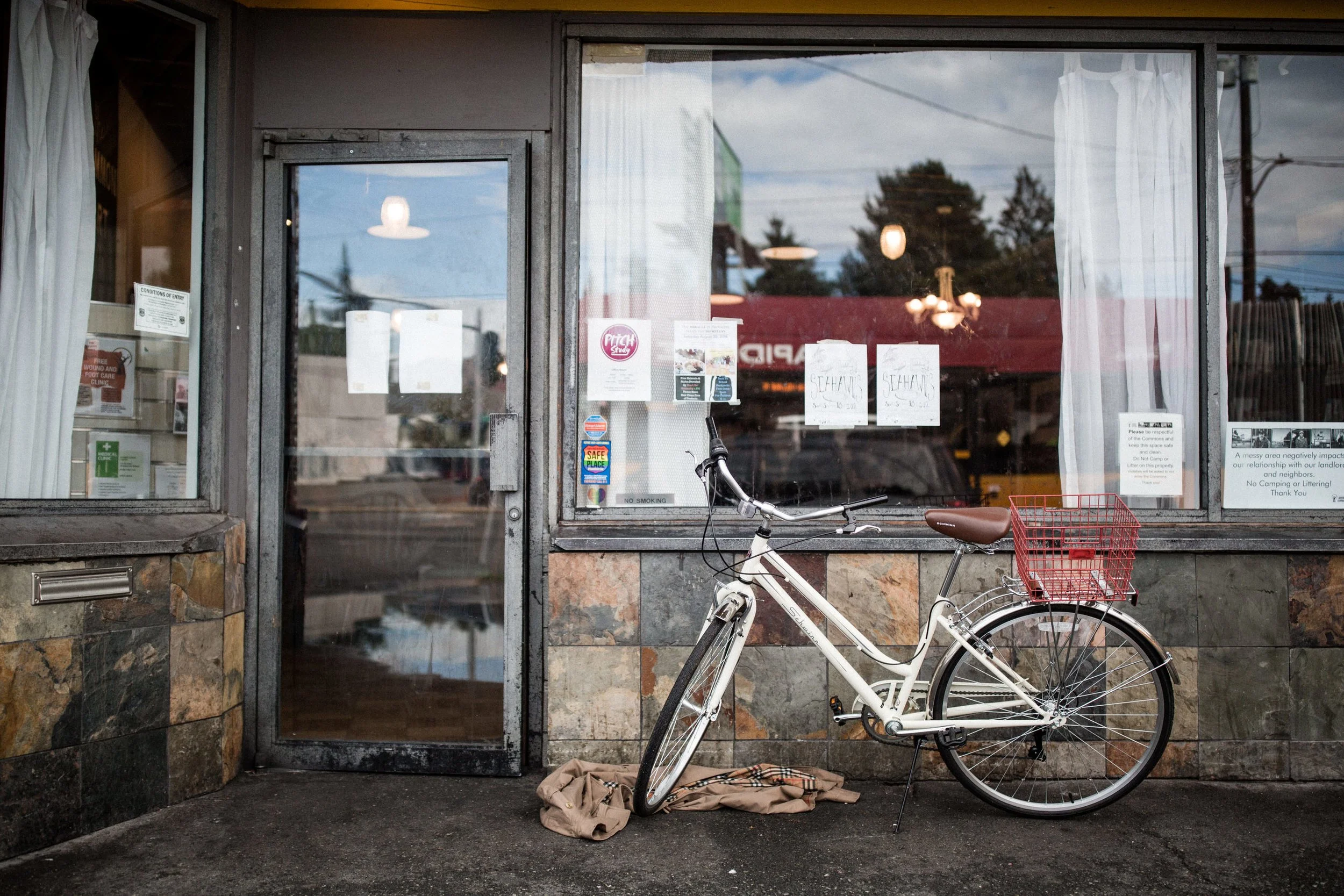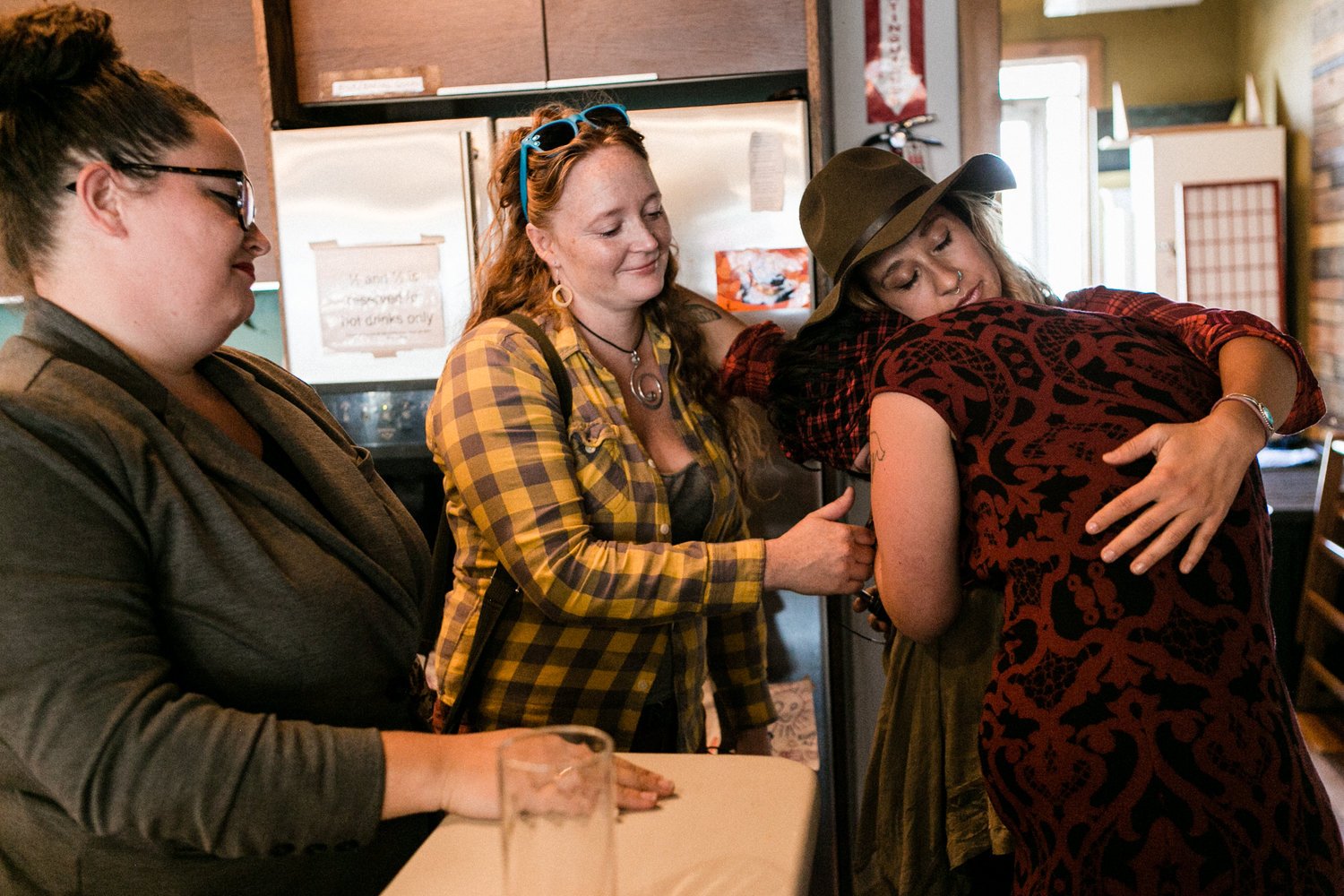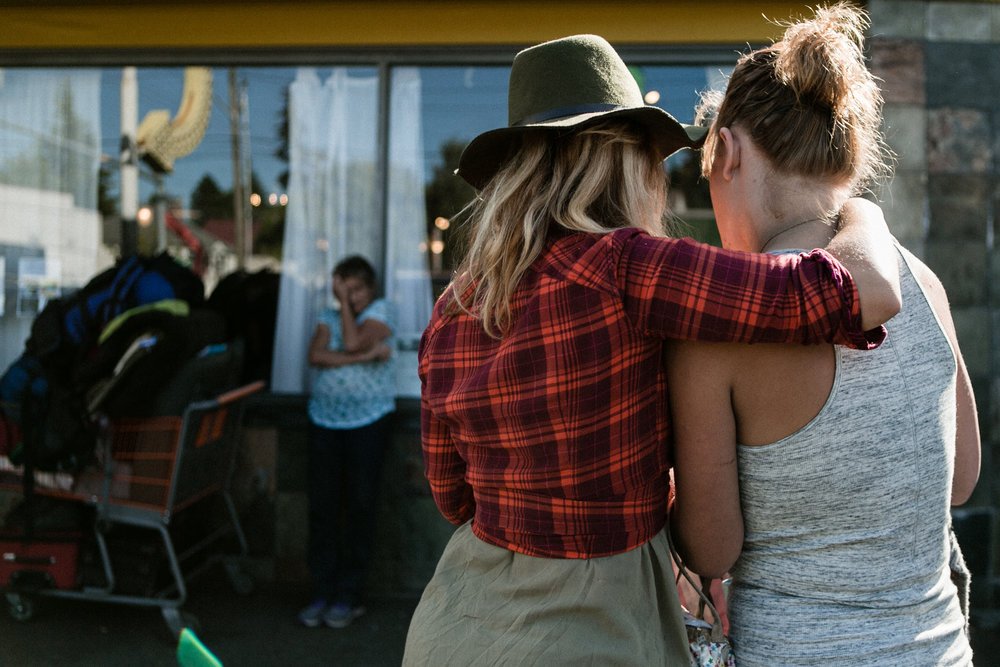A PLACE FOR THE UNSEEN
The Substance of Possibility
by Sparrow Etter Carlson
I write this now with my hand on my heart, and here it will remain.
For what follows is about the precious people within our midst who are treated as ex-humans in our society and, although not yet biologically dead, are relegated in life to a social death. These citizens I speak of are our unhoused neighbors. In Kings County alone, where I live, there are roughly 16,000 people experiencing homelessness and in North America as a whole they’re said to number almost half a million.
Since I know that I am addressing people of faith or who have a spiritual disposition, I can safely assume that no matter your creed or source, you believe (like I do) that these people inhabit the heart of G-D, and that, as Liberation Theologian Gustavo Gutierrez says in his book In the Company of the Poor: Conversations with Dr. Paul Farmer and Fr. Gustavo Gutierrez, “God has a preferential option for them, the poor.”
Photo: eddiecalz, Deviant Art
If I am to understand that faith could be defined by a devotion to, reverence for and belief in something of which you cannot see, then I am going to assume, (yes, an assumption yet again…and it’s only the third paragraph!) that, you, like me, are a fool. A fool that is absurd enough to have that faith animate your life in other ways too, like believing in people, in the promise of a new dawn, hope and possibility, and in the working out of all that we have yet to see.
I suppose I am bringing up matters of faith, foolishness, absurdity, hope, and possibility because I distinctly believe that we need so much more of their ingredients baked into our homelessness response system. And I think it’s up to us, as a people who believe in that which we cannot see, to be the ones who provide its substance.
What I’m asking us to consider is no easy task in the face of the precious other who is unsheltered. It’s painstakingly slow and never straightforward. It’s like chasing the “wild goose” as the Celtic mystics call the (S)pirit. But even more importantly, it’s believing, while chasing said wild goose, that they are a part of our greater V formation and that without the one, there can be no whole.
What I am getting at is this: Shouldn’t we, as people of faith, be those who believe that the folks sleeping on our benches, on our streets, and in our alleys and bushes, matter and that they are a part of us? And if we believe this, shouldn’t our ways of showing up with them, as well as the places and programs we create with them in mind, be and feel distinctly different than the services and programs we see modeled today?
As someone who has spent the last 22 years with intention toward and in relationship with my unhoused neighbors, accompanying them in the day-to-day stuff of life, having spent countless hours in shelters, in hospital rooms, on street corners, at appointments and in Aurora Commons the nonprofit drop-in center and medical clinic that I co-founded, what I can tell you is this: while programs like food banks and shelters are crucial, the greatest violence and injustice in homelessness that I have witnessed, is the social death. There is a critical void of spaces, places, and programs where our unhoused neighbors can show up and be surrounded by people who believe in sharing life in a way that foundationally maintains that these precious people are vital to their own flourishing.
One can only feel vital to the whole when one is known. But where are the places of knowing for folks experiencing homelessness when they typically are not welcome anywhere except places of direct service? And Can you really feel known when you are just a recipient of a service? Who are the people committed to knowing?
What I am speaking of is an invitation to create something new, a framework that shifts our work on homelessness to focus on flourishing instead of survival. It’s an invitation to expand our social orientation beyond ourselves and individuals to thinking about the community as a whole. and the belief that it takes all our flourishing, all our minds, all our experiences to create us.
When I close my eyes, I can easily recall the countless times that my commitment to creating space for my unhoused neighbors has made my moments more complicated and stretched out, but also teeming with life, wonder and the enlivening of my own existence. For example, the bubbling of a homemade soup on the stovetop of our communal kitchen that overflowed and left a cadaver of spoils in its wake but a smile on the face of its creator that I had not witnessed in years, followed by a breathy, sweaty exclamation of “soups up everyone!” The kitchen is perpetually messy, but when you are never asked to cook or given the opportunity to choose your own food or prepare it for others, this kitchen reminds you that you are still alive, still human and still capable of creating.
Photo: Aurora Commons
In this moment, I also call to mind the choice I have when I am in the emergency room with my unhoused neighbor and am asked by the doctor or nurse each time they enter the room “who are you in relation to the patient?” I respond that I am their “friend and neighbor.” The confusion my answer stirs up matters. Or how I respond when my unhoused neighbor offers a present for my daughter, their eyes are brimming with pride in the moment of giving. Their delight in witnessing my unquestionable receiving, fills us both with a holy warmth. To the precious other, a “thank you” uttered in their direction means that their existence is worthy of thanks. For someone who is rarely, if ever, asked to give of themselves, this really deeply matters at the soul level.
I’m not going to sugar coat this: woven throughout my many years of accompaniment and reciprocity on the streets has been the persistent temptation to create less fluid lines of encounter and draw in some hard solid ones that would undoubtedly take out the key ingredients of belonging and possibility. It would be much easier for me to preemptively believe that I know what is a person's next right step, or how to problem solve their behavior and make decisions about them without them, refer them out or give up on them all together.
Photo: Aurora Commons
I know the living out is crucial to the healing, to all of our healing. And I believe with my full heart, that a person singularity in any full-bodied way cannot come to know the true possibilities and particularity within themselves, alone or only in a clinical office...if this is true for me and you, this is also true for our unhoused neighbor. So, I simply can't do it. As enticing as it may be.
I know the gift I receive in the sharing of a communal, complicated life lived out of, and impacted by, the particular possibilities embodied in the precious other. My life is enlivened by it, richer for it. I cannot be a fully alive, flourishing me, without the particular-wholly-unto-them person in front of me. I was made to see this and be a recipient of their glory. And you were too. Folks, there is no justice without the substance of possibility, and this is the stuff of faith. But, unlike bread, you cannot line up to receive it. It must be lived out with others.
This sacred work is for fools like you and me.
Header Photo: Aurora Commons





